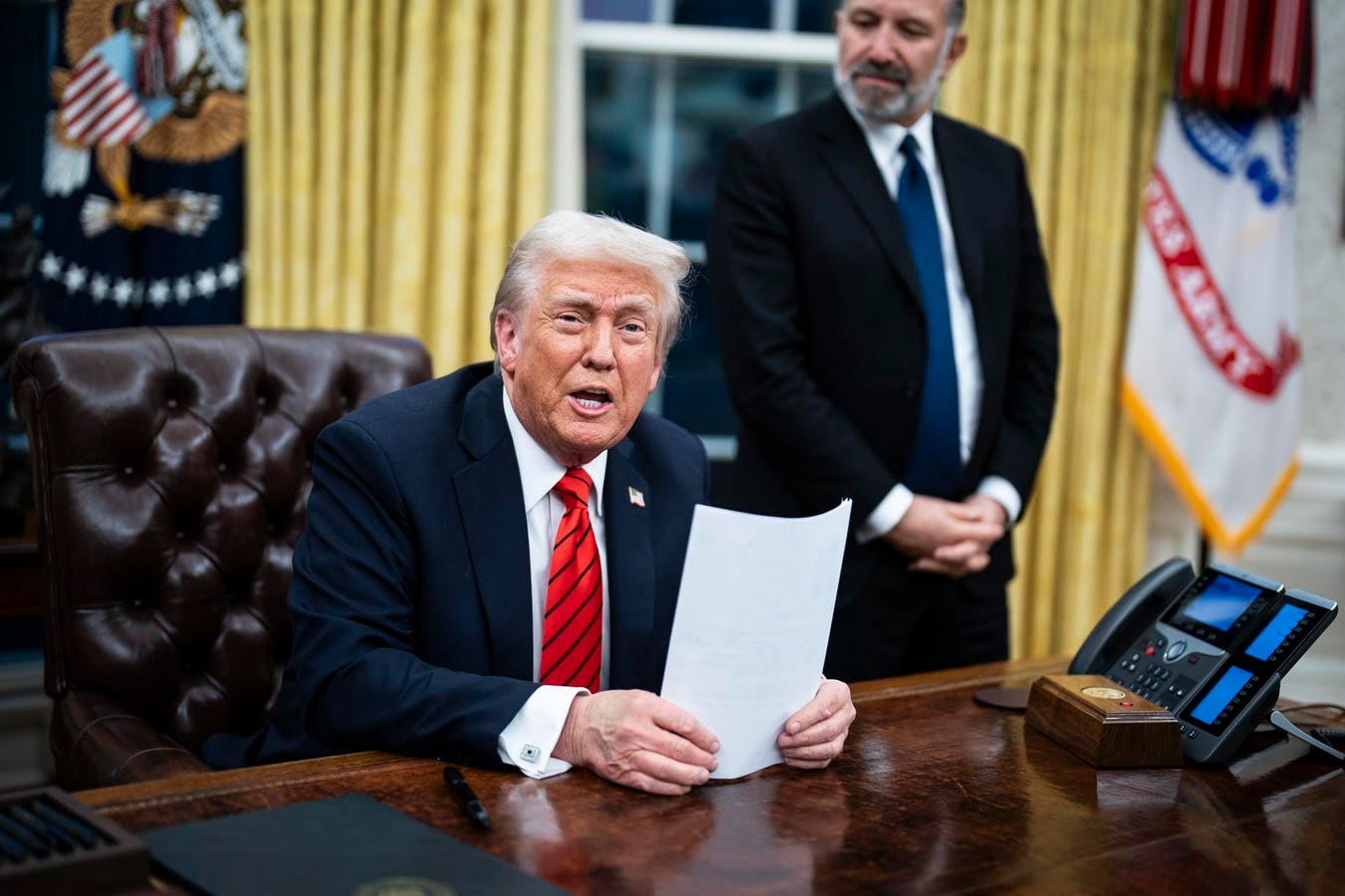Money
U.K. Trade Group Says Trump’s Tariffs Are ‘Sledgehammer To Free Trade’

The Impact of Trump’s Tariffs on Steel and Aluminum: A Global Trade Shift
A Swift and Significant Policy Decision
In a move that has sent shockwaves through the global trade landscape, former U.S. President Donald Trump announced a significant increase in tariffs on steel and aluminum imports. This decision, signed into law via presidential proclamations, imposes a 25% tariff on steel and aluminum entering the U.S., with no exceptions or exemptions for any country. The move has been met with strong reactions from trade groups, economists, and political leaders worldwide, who warn of far-reaching consequences for international trade flows and global economic stability.
Trump’s Vision for "Making America Rich Again"
President Trump framed the tariffs as a necessary step to protect America’s steel and aluminum industries, which he argues have been undermined by cheap, subsidized imports from countries like China. “It’s a big deal. This is the beginning of making America rich again,” Trump declared as he signed the orders. He emphasized that the tariffs are designed to prevent foreign governments from exploiting loopholes in trade agreements, particularly those that allowed allies like Australia, Canada, the EU, Japan, Mexico, and the U.K. to sidestep previous restrictions. Trump’s administration has long argued that these practices threaten U.S. national security and economic prosperity.
The U.K.’s Strong Opposition to the Tariffs
Gareth Stace, director general of UK Steel, was among the first to criticize the decision, calling it a “sledgehammer to free trade” with severe implications for the steel sector in the U.K. and globally. Stace argued that the tariffs would not only harm U.K. exports to the U.S. but also disrupt international trade flows, potentially flooding the U.K. market with diverted imports. He emphasized that U.K. steel products are high-quality and essential to key U.S. industries, which often cannot source these materials domestically. “U.K. steel poses no threat to U.S. national security,” Stace said, urging the U.K. government to collaborate with the U.S. to address the root cause of the problem: global excess steel capacity, which is projected to reach 630 million tonnes by 2026, according to the OECD.
The U.K. Government’s Cautious Response
The U.K. government has adopted a measured approach to the tariffs, avoiding immediate retaliation or knee-jerk reactions. When asked about Trump’s decision, a spokesman for Prime Minister Keir Starmer stated, “We will take a considered approach to this. We will engage with the U.S. on the detail, but the government is clear we will work in our national interest.” Trade Minister Douglas Alexander echoed this sentiment, warning that British industry would not benefit from a hasty or emotional response. Instead, he called for a “cool and clear-headed” approach to negotiations.
A Delicate Balance in U.S.-U.K. Trade Relations
The U.K. has historically enjoyed a strong and balanced trade relationship with the U.S., worth approximately £300 billion ($372 billion) annually and supporting millions of jobs. Alexander emphasized the importance of maintaining this partnership, stating, “In trade policy, we stand ready to work with President Trump to find solutions that work for both the United Kingdom and the United States.” However, the tariffs have raised concerns about the long-term stability of this relationship. While Australia may be in line for an exemption following its negotiations with the Trump administration, the U.K. government is under pressure to secure similar terms.
The Broader Context of Trump’s Trade Agenda
Trump’s tariffs on steel and aluminum are the latest in a series of protectionist measures implemented during his second term. Earlier moves included imposing 10% tariffs on Chinese goods and threatening 25% tariffs on imports from Canada and Mexico, though these were eventually resolved through last-minute agreements. Critics argue that such policies risk escalating trade tensions and undermining global economic cooperation. Meanwhile, Trump’s supporters view the tariffs as a necessary step to level the playing field for U.S. industries and restore American economic dominance. As the situation unfolds, the world watches closely to see how these measures will impact global trade dynamics and whether they will achieve their intended goals.